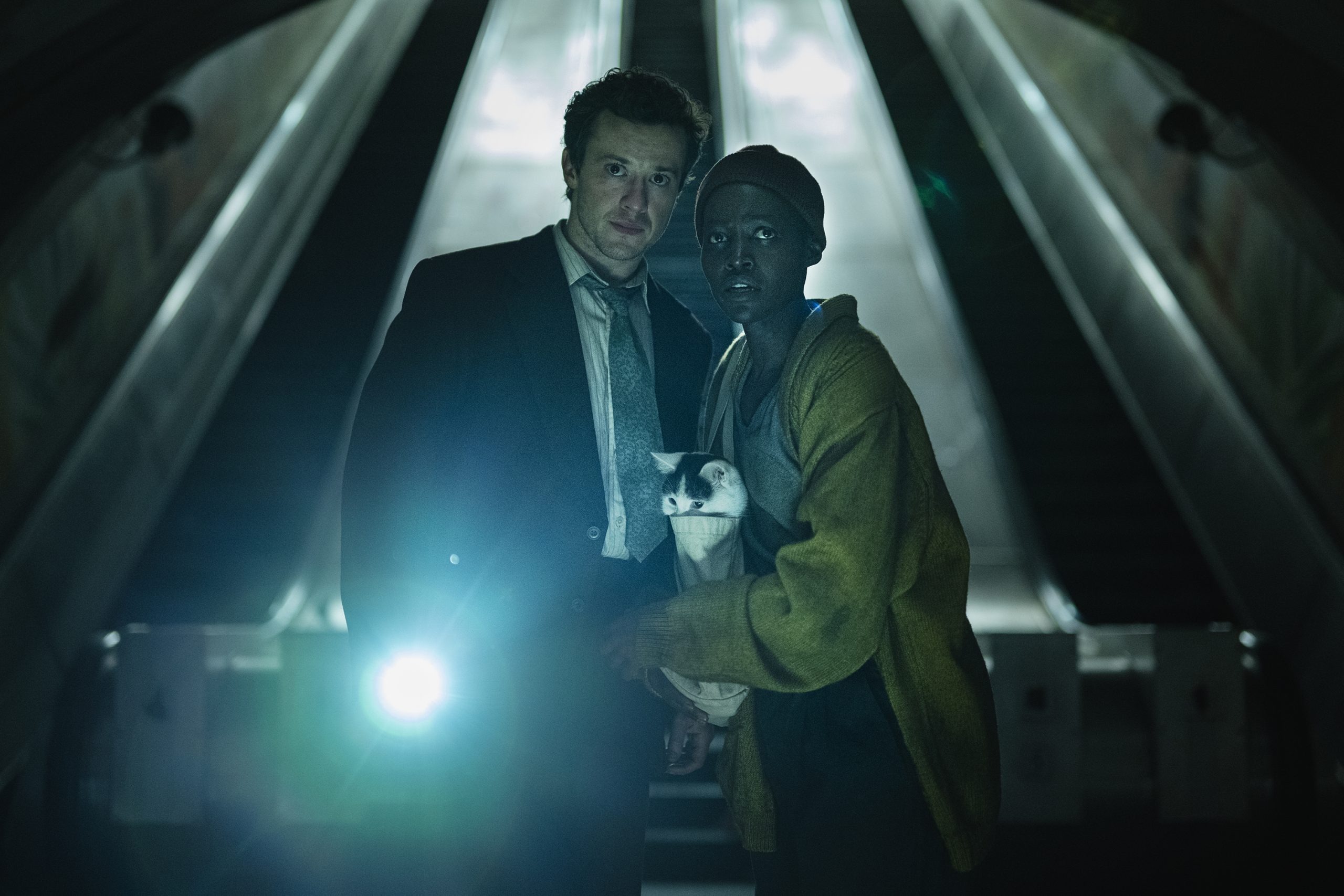When a horror movie makes as big of a splash as A Quiet Place did in 2018, there’s typically a push to find a way to further capitalize on the scares that made it such a success. This can often result in new installments that not only feel contrived, but seem to strip away everything that made the original movie compelling in the first place. Luckily, that’s not the case with A Quiet Place: Day One, now in theaters.
[time-brightcove not-tgx=”true”]
Serving as a prequel to both A Quiet Place and its sequel, 2021’s A Quiet Place Part II, Day One takes viewers back to—you guessed it—the very first day those pesky sound-sensitive aliens invaded Earth and began terrorizing humanity. Day One arrives in a year that’s already seen a spate of horror prequels—which run the gamut from the captivatingly sinister, like The First Omen, to the exhaustingly redundant, like The Strangers: Chapter 1—and it’s a welcome entry to the genre.
The story centers on Samira (Lupita Nyong’o), a terminally ill cancer patient who reluctantly agrees to take a trip into Manhattan with her hospice group only to find herself trapped in the New York City melee when the extraterrestrial assault gets underway. Eventually, Sam and her service cat, Frodo (the movie’s breakout star) attract the attention of a fellow lost soul, British law student Eric (Joseph Quinn), and the three form an unlikely trio whose time together changes their sense of what makes living worthwhile.
While Day One was produced by John Krasinski, who helmed the first two movies, this time around, indie director Michael Sarnoski (Pig) took the reins after The Bikeriders filmmaker Jeff Nichols dropped out of the project in early 2022. Directing from his own script, Sarnoski built on what made the original Quiet Place a smash hit—a character-driven narrative with emotional payoff—while still delivering a fresh take on the universe’s near-silent doomsday conceit.
Rather than once again focusing on the Emily Blunt-led Abbott family, Sarnoski relies on totally new main players—with the exception of Djimon Hounsou’s Part II addition Henri—to draw viewers into the story. “One of the great things about the Quiet Place universe is that you have this sort of fundamental creature, and beyond that, you can explore any human story you want to in that world,” Sarnoski told IndieWire. “You can tell a thousand different stories in this world because it’s just about the characters.”
Praised by critics for “grounding an outrageous premise in a relatable emotional core” and being “as much a melancholy quest narrative as a thriller about mortal peril,” Day One currently boasts an 86 percent fresh rating on Rotten Tomatoes and is expected to earn between $40 million and $50 million in its opening weekend following a Thursday previews gross of $6.8 million.
But while Day One packs a poignant punch, it’s not exactly in contention for scariest movie of the year. From a fear-factor perspective, horror fans hoping for a nerve-rattling viewing experience may find themselves underwhelmed by the film’s somewhat stale scares. After all, the allure of a shiny, new horror concept is often linked to the fear of the unknown—that feeling of anticipation and dread that keeps you on the edge of your seat (or hesitantly peering out from between your fingers). And by the third chapter of any horror franchise, it’s hard not to pretty much know what’s coming.

